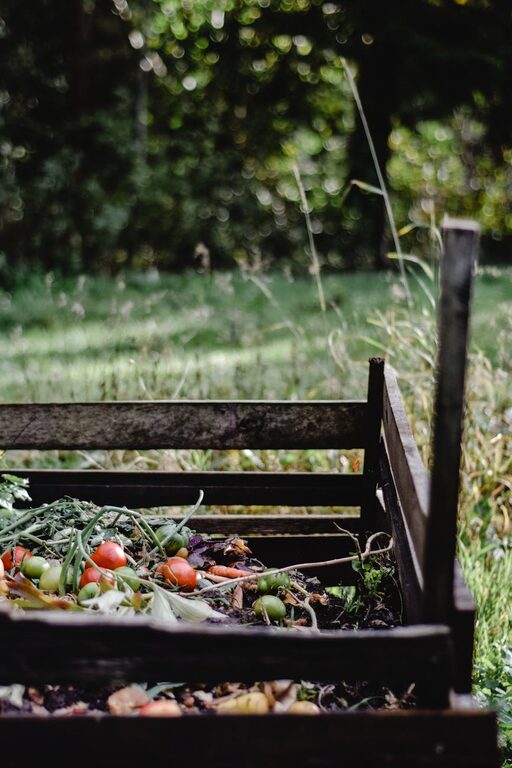Composting at home is a rewarding way to reduce waste and improve your garden’s soil naturally. If you’ve been curious about how to start composting but feel overwhelmed, this guide will provide clear and simple tips to get you going. Whether you have a spacious backyard or a small balcony, composting can fit into your lifestyle and help create a healthier environment.
What Is Composting?
Composting is the process of breaking down organic materials—like food scraps and yard waste—into a nutrient-rich soil amendment called compost. This compost can enhance your garden soil, improve moisture retention, and reduce the need for chemical fertilizers.
Benefits of Composting at Home
– Reduces landfill waste: Composting cuts down on the amount of garbage sent to landfills.
– Enriches soil naturally: Compost adds nutrients and improves soil structure.
– Saves money: You can reduce the need to buy fertilizers or soil conditioners.
– Supports plants: Healthy compost promotes strong plant growth and pest resistance.
– Helps the environment: Composting lowers methane emissions from organic waste in landfills.
Getting Started: Choose Your Composting Method
Outdoor Compost Bin or Pile
If you have some outdoor space, a compost bin or pile is a popular method. You can purchase a compost bin or make one yourself from wood pallets or wire mesh.
Indoor Composting Options
For limited outdoor space, try indoor composting methods like:
– Countertop compost bins with carbon filters to reduce odor.
– Vermicomposting with worms in a bin—great for apartment dwellers.
Backyard Tumbler Composters
A compost tumbler is a sealed container that can be rotated for easy mixing. It speeds up the composting process and helps keep pests away.
What Can You Compost?
Knowing what materials to compost is key to success. Balance “greens” and “browns” to keep your pile healthy.
Greens (Nitrogen-Rich Materials)
– Fruit and vegetable scraps
– Coffee grounds and tea bags
– Fresh grass clippings
– Eggshells (crushed)
Browns (Carbon-Rich Materials)
– Dry leaves
– Straw or hay
– Shredded newspaper or cardboard
– Small branches or twigs
– Sawdust (untreated wood only)
What to Avoid
– Meat, dairy, and oily foods (can attract pests)
– Diseased plants
– Pet waste
– Invasive weeds
Composting Tips for Beginners
1. Maintain the Right Balance
Aim for roughly 3 parts browns to 1 part greens. This balance helps decomposition and prevents smell.
2. Chop Materials Into Smaller Pieces
Smaller pieces break down faster, so chop kitchen scraps and yard waste before adding them.
3. Keep Your Compost Moist
Your compost pile should feel like a wrung-out sponge – damp but not soaking wet.
4. Turn or Mix Regularly
Aerate your compost every 1-2 weeks by turning with a garden fork or rotating your tumbler. This speeds decomposition.
5. Monitor Temperature
A healthy compost pile heats up during active decomposition. If it cools down, turning or adding more greens can help.
6. Be Patient
Composting takes time—anywhere from a few weeks to several months depending on conditions. Keep caring for your pile and you’ll see results.
Troubleshooting Common Composting Problems
| Problem | Cause | Solution |
|——————–|—————————-|————————————|
| Foul odor | Too much green material or moisture | Add more browns; turn pile for airflow |
| Slow decomposition | Pile too dry or compacted | Moisturize and turn more often |
| Pests | Meat or dairy in pile | Remove these materials and use a sealed bin |
| Compost too wet | Excess water or no drainage| Add browns and improve drainage |
Using Your Finished Compost
Once your compost looks dark, crumbly, and earthy-smelling, it’s ready to use.
How to Apply Finished Compost
– Mix into garden beds as a soil amendment.
– Use as mulch around plants to retain moisture.
– Blend with potting soil for container gardens.
Final Thoughts
Starting a home composting system is easier than you might think. With a bit of patience and the right mix of materials, you can turn everyday waste into something valuable for your garden. Not only will you cut down on your trash output, but you’ll also support sustainable gardening practices that benefit the environment.
Enjoy the process, and happy composting!

